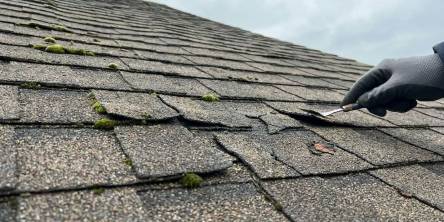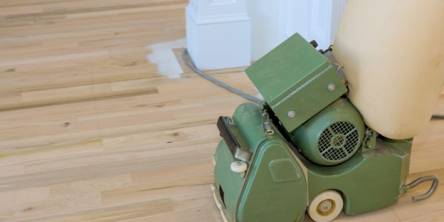Minimising Household Rubbish - 8 Real-life Methods That Work

You probably associate the phrase 'waste management' mostly with big brands and the negative impact some of them have on the environment. We often see such reports on TV or read about them in the newspapers. However, this is far from being a rule valid for all businesses. Neither is waste management a thing that only large companies should implement. Not anymore.
As global ecological trends predict a scary future for us all, going green at home is nearly mandatory today. While for companies having a strict waste policy could also bring huge benefits in term of marketing, for home owners it's just an act that helps maintain sustainability in their area. So, here are eight easy ways to reduce, reuse and recycle in your very own place.
Reduce Generated Junk
Less Packaging. This is easy, once you develop a habit for it. Just whenever you're in the supermarket remember to select the items that have little or no packaging at all. Go local and visit small shops where you'll find fresh fruits and veggies that are not wrapped in layers of paper or plastic. Of course, put all you buy in a cloth bag – don't forget to always have one handy.
Less Bottles. If someone peeps into your garbage, it will probably be quite easy for them to say how much and what exactly you and your family drink. By reducing the total amount of plasitc bottles you dispose of, you'll not only make it harder for them to guess but help in the fight with plastic pollution. Cans and glass bottles are better options, in case you bin them separately. However, when it comes to drinking water, the best alternative for your home is using a dispenser or a water jug – both won't lead to a pile of plastic bottles over time.
Less Paper. You have been most likely offered paperless billing more than once before – opt for it already! When you withdraw cash from the ATM, there's often an option to cancel the printing of receipt as well. Instead of collecting receipts, just sign up for online banking and you'll be able to see all of your transactions in one single place. As a company for household rubbish removal reports, there are heaps of unopened and unread paper mail in the landfills. That's why more and more companies are embracing modern billing policies as this saves them money for paper and also has its marketing advantages - it allows them to be called a green or eco-friendly organisation. Anyway, choosing web-based billing over traditional paper bills can be very useful (easy access to an online archive) and is good for the forests, too.
Less Newspapers, Magazines & Product Catalogues. Similarly to the previous nature-friendly method, you can cut your household's paper waste by preferring to get the scoop online, thus spending no money on printed issues. Even more – the same newspapers and magazines you're used to, probably have their own websites where you can read the latest news without buying a hard copy. Same applies to all kinds of catalogues – don't just grab the shiny printed brochure by habit. Going paperless here often means a faster way to browse items online, search for a specific product, define price range or filter by categories, tags, etc. It's a win-win situation for you, your precious time and Mother Nature.
Reuse Some Products
Reusing and repurposing items is the second step to a greener home. And it's maybe the easiest one. Let's see just two techniques you can utilise right away.
Reusable Bags. While these may be slightly more expensive than the common plastic bags, they're a wonderful way to do good to your local environment. Cloth shopping bags can be found in every store today, so take one with confidence next time you find yourself at the checkout point. In the rare case there are no cloth bags, a paper bag is still much better than a plastic one.
Plastic Containers. Some of the plastic boxes intended to be single-use packaging for foods such as butter or ice cream are way too durable to just throw away in the rubbish bin. Why produce more household waste, when you can use them again to store leftover lunch in the fridge or keep fresh products in the freezer?
Recycle Your Waste
Let The Supermarkets Recycle. Recycling is the third R of the famous 3 R's of the Environment (reduce/reuse/recycle) and is arguably the most important one. After the tips for reducing home rubbish and repurposing items, here are two more methods to handle junk in a positive way. Most supermarkets and large shopping malls provide convenient points for collection of waste that they later recycle – just use them! Often, there's a separate spot dedicated to electronic materials (also known as e-waste) – great for spent batteries, old computer accessories and so on.
Composting. You can try this method to recycle organic waste and use the compost to fertilise your veggie or flower garden. Don't have enough green space for a big garden? Then, you could consider container gardening or set up a small herb garden indoors. That would be a wonderful opportunity to go creative and reuse old plastic containers and bottles - especially if you're a fan of do-it-yourself projects. All of your food leftovers and other organic materials can be dumped in the compost heap, including pieces of paper, egg shells and so on.
So, if you're really willing to go green – try these 8 ways and cut dramatically the amount of junk generated by your household on a daily basis.
Similar Articles
Luxury interiors are not built through clutter. They come through calm. They come through balance. They come through the quiet presence of well-chosen materials.
Discover modern wallpaper styles that elevate any room. Explore 2025–2026 trends, peel-and-stick options, textures, accent walls, and tips for choosing the right look.
Energy efficiency has become a top priority for homeowners as energy costs rise and comfort expectations increase. While many people focus on windows, insulation, or appliances, the roof plays a major role in regulating indoor temperatures.
Refresh your driveway without replacing it. Discover budget-friendly cleaning, repair, resurfacing, and design ideas that boost curb appeal and durability.
We all know that roofs don’t last forever, but how do you know when it's really time to replace yours? After all, your roof is out of sight, out of mind, right?
As winter settles in and temperatures drop, families across the country brace themselves for the inevitable spike in energy bills.
Wooden floors have long been the subject of admiration for their classic beauty, natural warmth, and strength.
When it comes to giving your home a fresh coat of paint, most homeowners focus on choosing the perfect color and finish.
The holiday season transforms neighbourhoods into glowing wonderlands, but today's homeowners are moving beyond the traditional approach of simply stringing lights wherever they fit.









